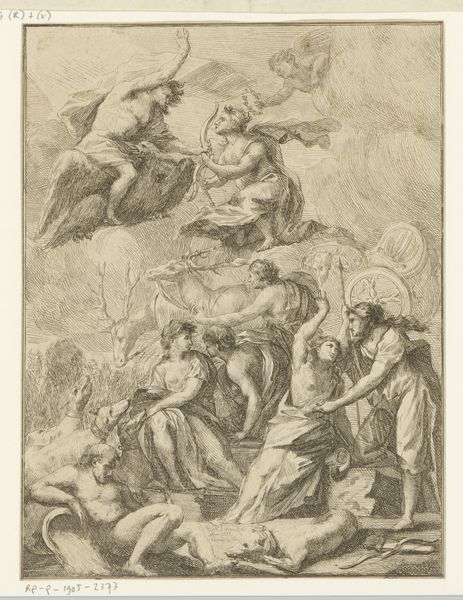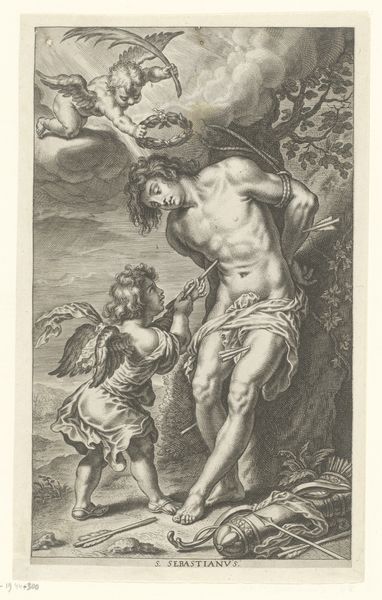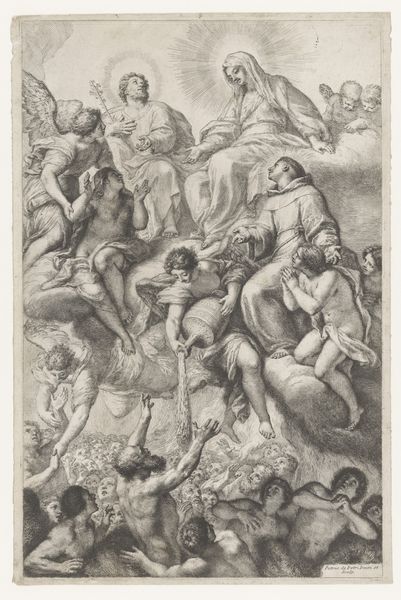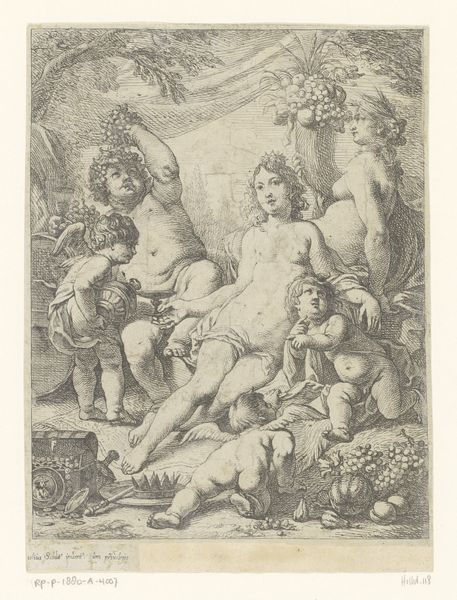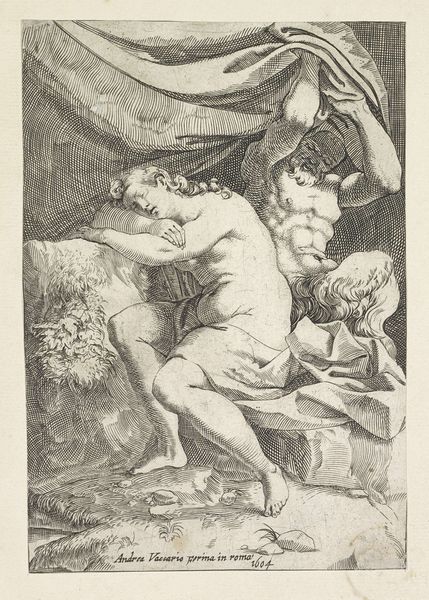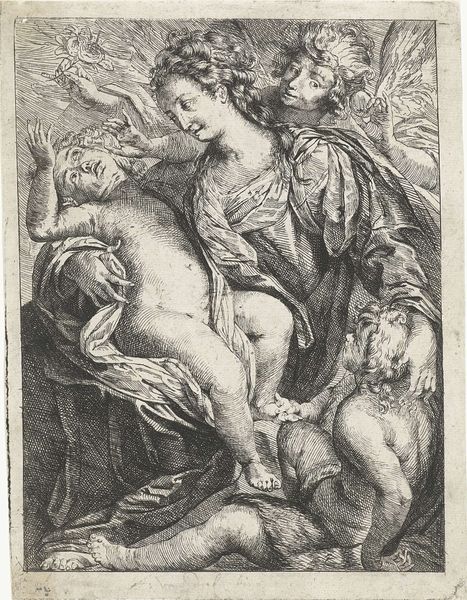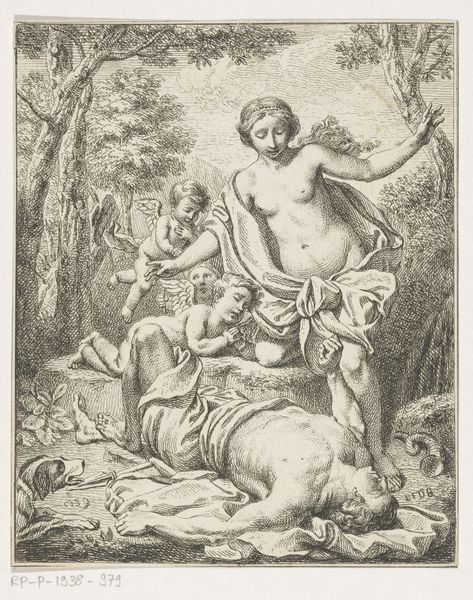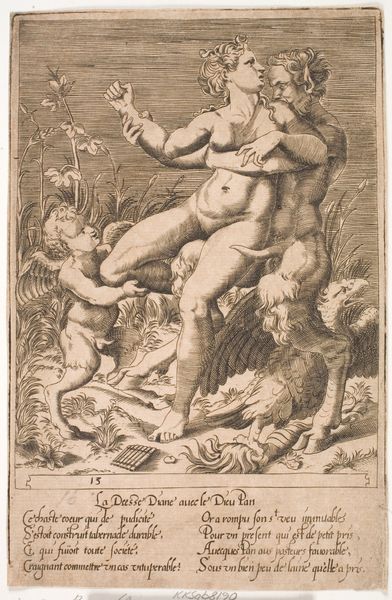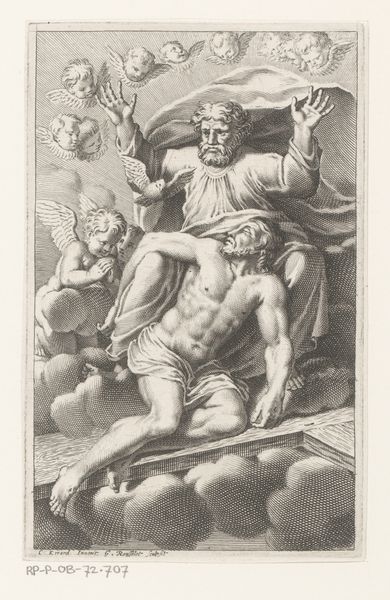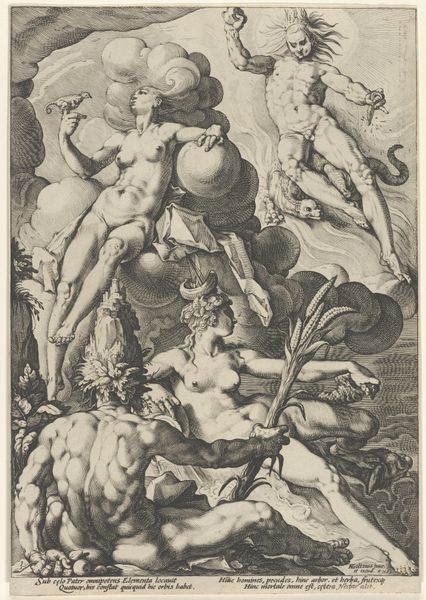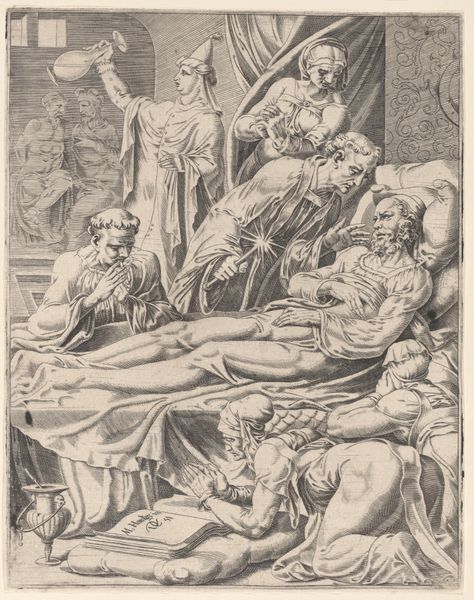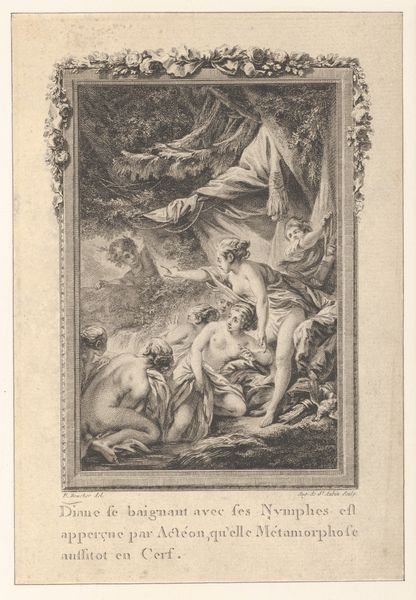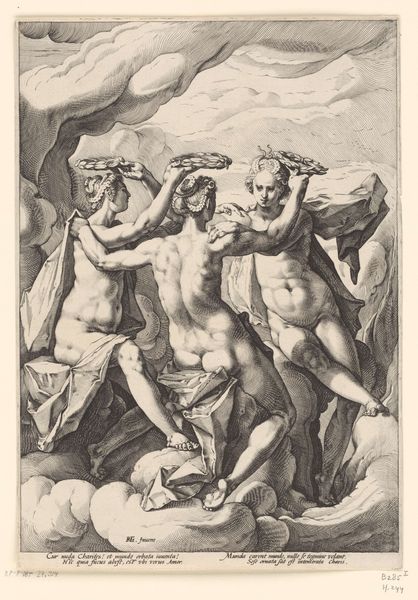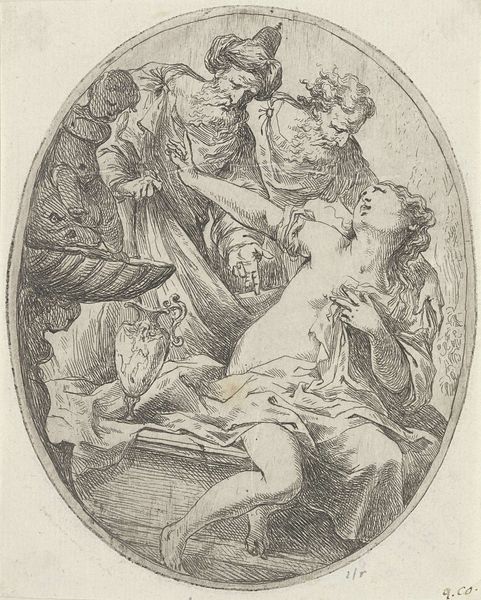
Allegorische voorstelling met de Schilderkunst die gekroond wordt door de Eeuwigheid 1738
0:00
0:00
louisfabritiusdubourg
Rijksmuseum
engraving
#
allegory
#
baroque
#
old engraving style
#
figuration
#
surrealism
#
history-painting
#
engraving
Dimensions: height 215 mm, width 157 mm
Copyright: Rijks Museum: Open Domain
Louis Fabritius Dubourg created this allegorical etching around 1738. The work, rendered in a monochrome palette, presents a complex arrangement of figures, objects, and symbolic forms designed to convey a layered meaning. The composition rises from a prostrate figure in the lower foreground, ascending through cherubic forms and culminating in the crowning of the personification of Painting. Note how Dubourg employs a semiotic language here: the fallen figure embodies hardship, while the act of crowning signifies achievement and immortality. This juxtaposition isn’t merely decorative; it embodies a structural dialogue between struggle and triumph. The etching’s texture, achieved through fine, intricate lines, contributes to its overall visual density. The artist utilizes form and line to suggest depth and movement, destabilizing a singular reading and allowing for an exploration of art, mortality, and everlasting fame.
Comments
No comments
Be the first to comment and join the conversation on the ultimate creative platform.
